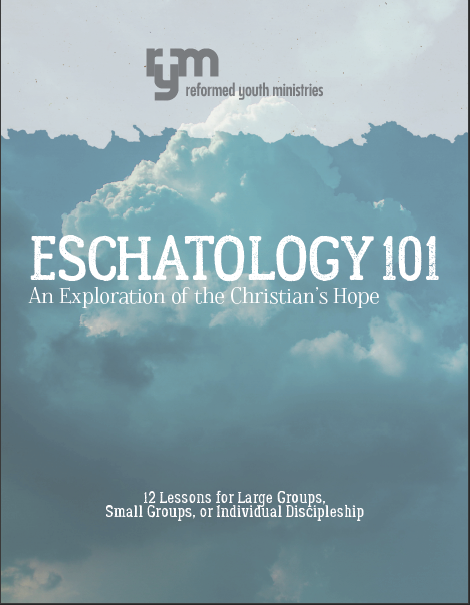About the study
Eschatology—the study of “last things”—captures the imagination and curiosity of many Christians, including students. Topics like death, judgment, heaven, hell, and Christ’s return naturally stir up interest and questions. But this study is not just about satisfying curiosity; it’s about cultivating hope. In the face of discouragement, temptation, and suffering, eschatology points us to our ultimate hope: Christ’s return to rescue His people, judge His enemies, and renew the world.
Eschatology 101 offers twelve weekly lessons that focus on what the Bible teaches about our future. While some eschatological topics, like the nature of the millennium, have sparked debate throughout church history, this study emphasizes the truths that unite all Christians. Each 30-45 minute lesson is grounded in Scripture and easy to adapt for middle school, high school, or even adult learners. The content is flexible enough for classroom, small groups, or personal study, allowing leaders to make it their own with illustrations and personal applications.
Eschatology 101 offers twelve weekly lessons that focus on what the Bible teaches about our future. While some eschatological topics, like the nature of the millennium, have sparked debate throughout church history, this study emphasizes the truths that unite all Christians. Each 30-45 minute lesson is grounded in Scripture and easy to adapt for middle school, high school, or even adult learners. The content is flexible enough for classroom, small groups, or personal study, allowing leaders to make it their own with illustrations and personal applications.
Download it free now!
Download Eschatology 101 for free today and equip your students with a deeper understanding of “our blessed hope” (Titus 2:13). Help them see that no matter what challenges they face, Christ’s return is good news worth celebrating and sharing.

